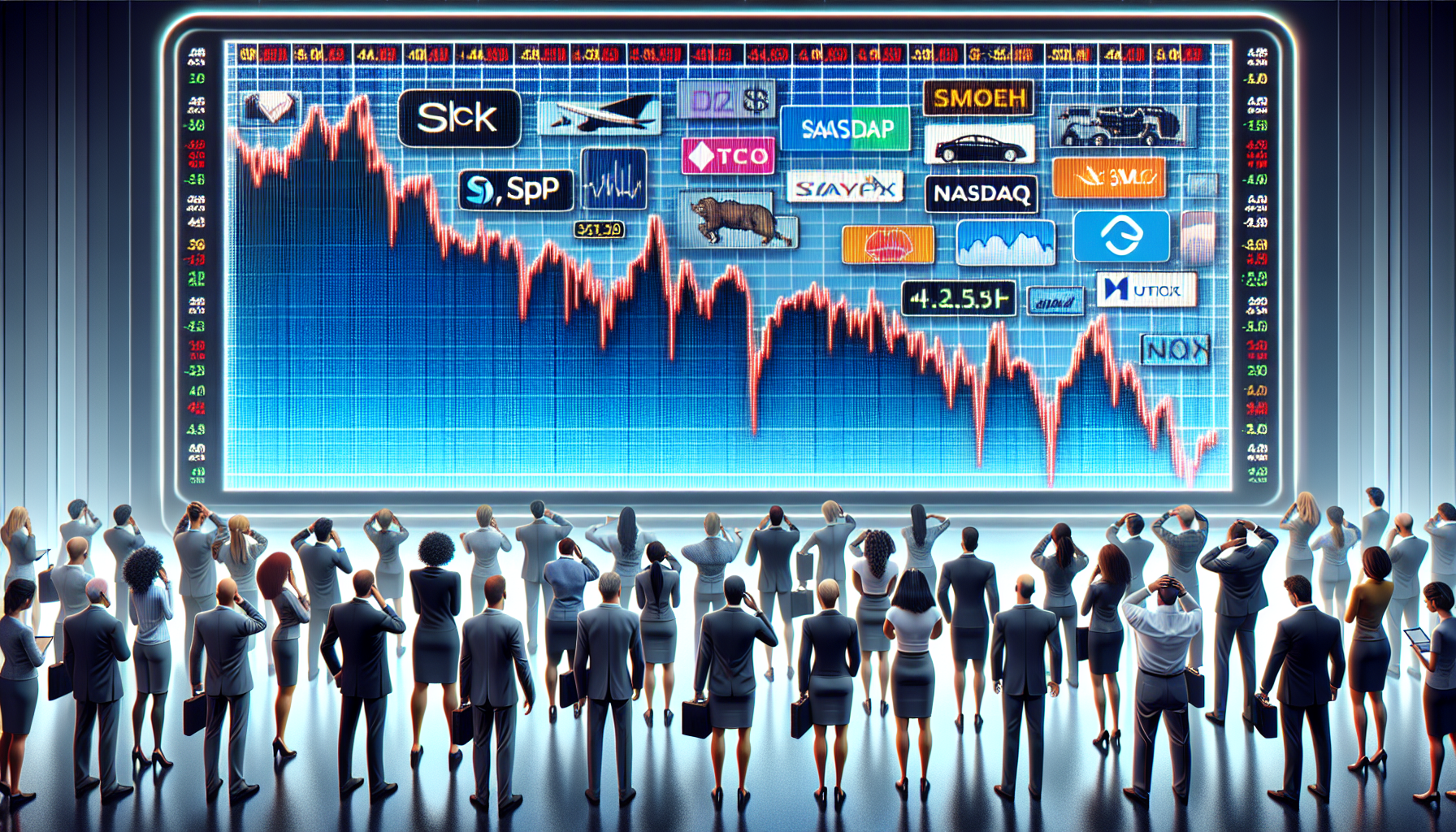Market Turmoil: S&P 500 Hits Lowest Since September as Tariff Fears Intensify
The U.S. stock market faced a sharp sell-off on Monday, with major indices plunging as investors braced for new tariffs set to take effect later in the week. The S&P 500 fell into correction territory, dropping more than 1.6%, while the Nasdaq Composite tumbled 2.5%. The Dow Jones Industrial Average lost 355 points, marking one of the worst trading days in recent months. The declines were led by tech giants like Nvidia, Meta Platforms, and Tesla, which saw losses of 4.3%, 2.6%, and 5.3%, respectively.

Why Are Markets Crashing Ahead of "Liberation Day"?
President Donald Trump’s upcoming tariff rollout, dubbed "Liberation Day," has sent shockwaves through global markets. The new measures include a 25% levy on all foreign-made cars, along with reciprocal tariffs targeting countries that impose duties on U.S. goods. Investors fear these policies could escalate into a full-blown trade war, disrupting supply chains and increasing inflation.
Tech Stocks Bear the Brunt of the Sell-Off
The Nasdaq, heavily weighted toward tech stocks, has been hit hardest, falling 16% from its December peak. Companies like Tesla and Nvidia, which rely on global supply chains, are particularly vulnerable to trade restrictions. Analysts warn that prolonged uncertainty could further depress tech valuations.
Global Markets React to U.S. Trade Policy Shifts
Asian markets tumbled in response to the looming tariffs, with Japan’s Nikkei 225 plunging over 4% into correction territory. South Korea’s Kospi dropped 3%, while Australia’s ASX 200 fell 1.74%. European indices also opened lower, reflecting widespread anxiety over trade disruptions.
Automakers Under Pressure as Tariffs Loom
General Motors, Ford, and Stellantis extended losses, shedding 2.5%, 1.5%, and 3%, respectively, in premarket trading. Trump’s comments that he "couldn’t care less" if automakers raise prices due to tariffs have exacerbated concerns about shrinking profit margins in the industry.

Trump’s Aggressive Trade Stance Sparks Economic Concerns
According to The Wall Street Journal, Trump has urged advisors to take a harder line on tariffs, signaling a potential escalation in trade tensions. Economists warn that prolonged trade disputes could lead to stagflation—a toxic mix of stagnant growth and rising prices.
Bitcoin Mining Venture Adds to Market Volatility
In a surprising move, the Trump family partnered with Hut 8 to launch American Bitcoin, a new mining venture. Shares of Hut 8 surged 7% in premarket trading, but the broader crypto market remains volatile amid macroeconomic uncertainty.
What’s Next for Investors?
With "Liberation Day" approaching, markets are bracing for further turbulence. Key economic data, including GDP revisions and central bank commentary, will also influence sentiment. Analysts suggest that investors should:
- Monitor trade negotiations post-April 2 for clarity on tariff impacts.
- Diversify portfolios to hedge against sector-specific risks.
- Stay cautious on tech and auto stocks until policy outcomes are clearer.
Conclusion: Market Implications for the Coming Weeks
The recent sell-off reflects deep-seated fears about trade wars and slowing economic growth. If tariffs take full effect, supply chain disruptions and higher consumer prices could further dampen market sentiment. However, if negotiations lead to moderated policies, a relief rally may follow. Investors should prepare for continued volatility while keeping an eye on central bank responses and corporate earnings reports for directional cues.

